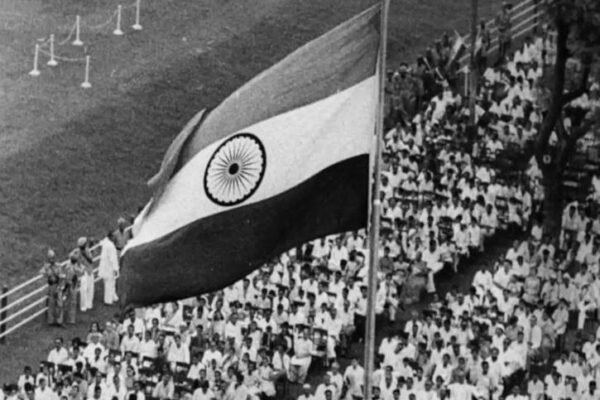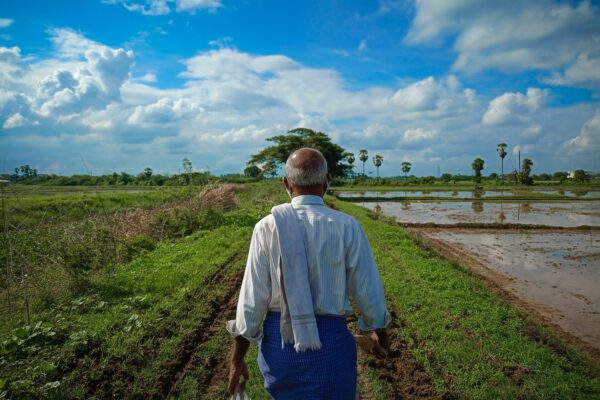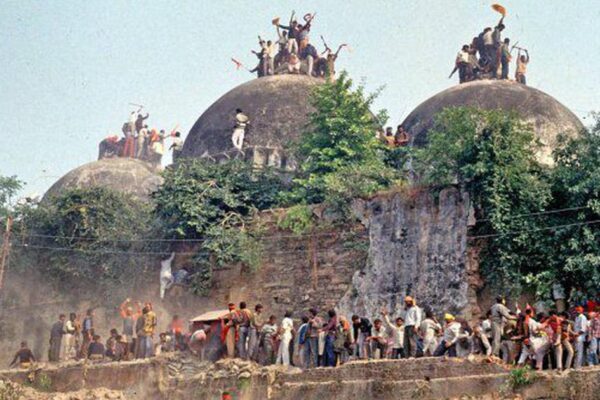The police and administration have been accused of caving into the demands of the mob by cancelling the permission for Namaz at several sites.
The police and administration have been accused of caving into the demands of the mob by cancelling the permission for Namaz at several sites.
Last Friday, a mob of Hindu nationalists, donning saffron tunics and mufflers, accosted a group of Muslims who had gathered at a park for Friday congregational prayers in Gurgaon city near New Delhi, India.
In an attempt to disrupt the prayers, the mob shouted “Bharat Mata ki Jai” (Hail the motherland)” and Hindustan Zindabad (glory to India) and forced the congregation to repeat the chants.
The scenes that played out were a repeat of what has been happening every Friday for the last three months in Gurgaon; members of Hindu extremist groups storm sites in a bid to stop Muslims from holding congregational prayers.
Gurgaon emerged as a satellite city to ease the load on the national capital in the last thirty years. However, the city has only 13 mosques to cater to the population of around half a million Muslims including daily migrant labourers whose hard work has built the town.
In absence of an adequate number of mosques in the area, Muslims were forced to use open spaces — parks, parking lots, roadside yards — as makeshift arrangements to hold Jumma Namaz, or Friday prayers.
For years, the prayers in open would be held at around 100 spots without anyone having any issues at all. However, the first friction began in 2018 when a group of Hindu fanatics objected to Muslims offering prayers in open.
Muslim representatives approached the administration demanding action against the group. Instead of acting on their grievances, the community was asked to reduce Jumma sites so adequate security could be provided to those offering the prayers.
The Muslims offered to reduce the number of open sites for prayers to 60 but it was not accepted and instead, the administration designated 37 prayer sites including three mosques in the entire city and its environs.
Muslims who are feeling increasingly marginalised under the rule of Prime Minister Narendra Modi could not think of anything else but to accept the decision. Things stayed calm for more than a year. Then in March 2020, Covid struck, bringing everything to a halt inducing congregational prayers.
But in August when the situation improved, normal activities resumed and Muslims in Gurgaon also began to congregate for prayers once again. However, a month into it, Hindu nationalists with support from local Hindu residents showed up, shouting slogans and demanding an end to Namaz (Salah) in open.
On November 5, they held a Hindu religious event at one site where leaders from Prime Minister Modi’s party spoke against Muslim congregations. The event was marked by violent hate speeches but police did not take any action despite written complaints by Muslim representatives.
The growing concern over opposition to Muslim prayer reached the parliament last week after Muslim lawmaker E. T. Mohammed Basheer called the attack on Namaz a “very sad thing”.
“These hooligans are attacking when people come for Jumma prayers. They are doing all kinds of cruelties. It is a story of tears…This is nothing but misuse of power.… Innocent Muslims are also escaping out of fear,” Basheer said in his address to the parliament, urging the house to “seriously think about it”.
The police and administration have been accused of caving into the demands of the mob by cancelling the permission for Namaz at several sites.
Muslims say those disrupting Namaz are enjoying the patronage of the ruling party which emboldens them to bully Muslims without having to fear any punitive action under the law.
This was made further evident last week when the Chief Minister of the state openly said “offering namaz at public spaces will not be tolerated as it is leading to controversies and confrontations”. The administration then withdrew permission at the remaining places.
However, Muslims defied the diktat as last Friday they gathered at six sites and held congregational prayers. Moreover, a Muslim group vocal on the Namaz issue last week filed a petition before the Supreme Court seeking action against officers for failing to stop Hindu groups from disrupting congregational prayers.
For Muslims, the permanent solution to the impasse is making land available for the construction of an adequate number of mosques in the city to accommodate everyone but their pleas seem to have been negated by the officials.
“Muslims of Gurgaon are forced to offer Juma Namaz in open because the authorities have not allocated land to us. All our applications get rejected and earnest money refunded including our latest application submitted in October, 2021,” said Altaf Ahmad, a co-founder of the Gurgaon Muslim council, appealing the Chief Minister for land in multiple sectors to build multistorey mosques. “That shall be the end of Juma Namaz row.”
But Hindu nationalists continue to double down on their intransigent position; on Sunday they asked Muslims of Gurgaon to leave Islam for Hinduism and pray at temples.
“We can organise a mass ‘ghar wapsi’ (homecoming or reconversion) in Leisure Valley here and they will be taken back in their castes and accepted with open arms,” Mahaveer Bhardwaj, a leader of an amalgam of Hindu groups that have come together against Namaz, was quoted by Indian media. “They will have their temples to pray and this namaz issue will end.”
It remains to be seen what will the end result be of this continued targeting and attack on Muslims in India.





